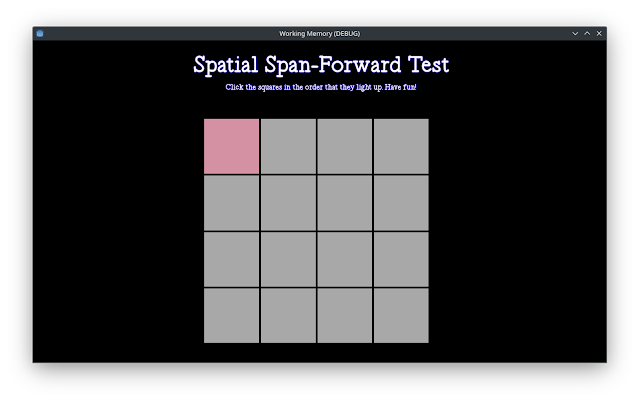One of the amazing things about video games is their ability to lead you into a new world, not just as a passive observer but a true participant in the strange machinations of the game. This worked excellently for the Star Wars franchise, where so much lore is expounded upon in many, many different titles. My thinking is, if this can be done for the Star Wars universe, why not other universes too?
What is it that makes the tie-fighters in Star Wars so much catchier than the behaviour of, for example, an RNA polymerase?
For one thing, that's a silly question. RNA polymerase is fairly boring. It doesn't have much of an intention besides "make the RNA" and it doesn't have much of a story beside "it evolved this way over billions of years by random chance". That's about as blank of a story as you can really get.
Moving away from the comparison with Star Wars, I think the best-ever example of a functioning game in the edutainment genre is Duolingo. This app used to be considered a reasonably serious-business language learning software and less of a game, but over time, it has become increasingly game-ified to a point where I see it referred to and categorized as a game even more than anything else.
Duolingo is, in my opinion, the present-day champion of the edutainment genre. Nothing that I know of has even come close. It has a unique sense of poise, where it is primarily a no-nonsense language learning app (it only really attracts people who already want to learn the language), but showers the player in effects, goals, social incentives, metrics and points as they continue to engage. This makes the language learning experience very pleasurable, coordinated, and you know without a shadow of a doubt that if you complete a whole Duolingo course in your chosen language you will get some idea of the language, even if it's not a complete one.
This is a game that presents a tangible benefit to the player. It isn't something abstract (like telling a good story), it's a truly intrinsic reward. That is, in my opinion, the strength of the edutainment genre. So why don't we see more edutainment games?
That's a good question, and really, I don't know. I think that the games industry has stagnated in the last few years, in part because of vacuous incentives present in most games. If you can be entertained by a story, why not watch a movie or a TV series? It's less practical effort, and you might enjoy it just as much. Some games already resemble movies with interactive segments spliced in.
One intrinsic benefit to games is the ability to show off your gamer skills to your peers. That's true of any skill-based game, but also of the multiplayer variety. MOBAs such as Dota 2 and League of Legends come to mind. These have the intrinsic benefits of providing essentially a platform for socializing. Team-based deathmatch games like Counter-Strike and Team Fortress 2 also come under this category.
However, you might already imagine that this edges out a lot of small developers from competing in this sphere. As are the same problems with the (already heavily game-ified, I should add) social networks, if you don't have lots of users already, you won't be able to recruit any more.
So to me, this speaks to an opening in the industry. Games can be used to communicate, incentivize, and provide rewards for the player-- why aren't we getting more creative with what those rewards are? There's only so far that a gamer can go without needing to get up, earn money, eat food. If we're asking them to share their time with our games, we need to make it worthwhile.
Well, that's my thoughts for today, at least. I'd love to make a game that can include some real biological information. Perhaps I would be taking a page from Duolingo's book and positioning it as a purely "learning-oriented" app before a game. Alternatively, I could be making a "museum"-style thing.
There's a long way to go before that dream can be realized, I think. For one thing, I need to finish my actual degree first!!



